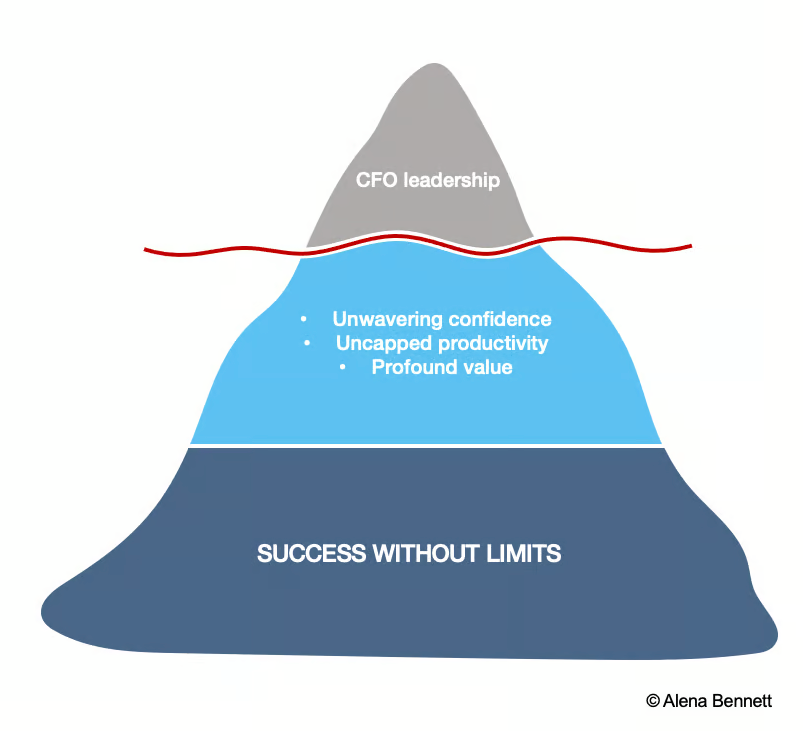I was reminded recently when I was facilitating a Finance Leadership Team workshop how easy it is to forget the important principles of a growth vs fixed mindset as evaluated in Carol Dweck's, Mindset. I remember when I first read Mindset, I thought 'oh my gosh. Through my education I have been taught how to have a fixed mindset. My job is to be smart, have all the answers and prevent failure at all costs.' Thinking about it – we've all received high grades, exceptional performance reviews, we strive to be the trusted adviser and safe pair of hands and in doing so have done everything in our power to keep our businesses off the front cover of the paper.
We've been rewarded and promoted for our fixed mindset. And now we know having a growth mindset is the recipe for success. How frightening.
We know that the attributes of a growth mindset is what leaders of today and tomorrow need to face tomorrow's challenge and uncertainty. We know that this encompasses lifelong learning, failing forward and putting ourselves out of our comfort zone. Being curious, creative and okay with the idea that an experiment may not pay off.
But it's hard to really embrace those attributes if we can't see the link to or how it benefits our present-day job and situation.
This is where an executive coach can pay off.
Executive coaching is about high performance – not remediation
One of the myths that still exists today is that coaching is a mode of intervention that should be reserved for underperformers. That it's really only those that aren't cutting it at work that need help.
If this is your belief, then you're missing out on enormous opportunity (and also possibly investing your hard earned resources poorly).
As described in the Australian Financial Review, executive coaches are now a 'must have' for CEOs and involves '"Being challenged and guided on a monthly basis by someone independent ensured I was well-prepared to answer complex questions."
An executive coach brings to the table different perspectives and a skillset and toolset that enables a bespoke transfer of knowledge in a confident, deep and applied way. For CFOs that don't have the benefit of many sounding boards available to them, having an executive coach creates the space for CFOs to download their challenges, fears and dreams with a professional who is solely invested in them and their success. It's why the CFO Boardroom has a perfect blend of 1:1 coaching and community events - so our CFOs get the benefit of both deep and broad perspectives.
It's why our most elite athletes don't go it alone – they typically have at least one head coach and often several others to provide support in specific areas.
We are our most valuable appreciating asset
But if we don't invest in ourselves, we won't appreciate – we'll stagnate and with the world moving as fast as it is, we'll actually depreciate in value. For a group of professionals that typically hold security and certainty in high regard, this might be a frightening thought.
The best way to ensure you appreciate in value despite what might be around the corner, is to make sure you're equipped with highly adaptive and transferable skills. Not only to make sure you're succeeding today, but so that you have unwavering confidence that you'll continue to be successful in the future.
How proven CFOs future proof their success
When we think about future proofing CFOs for success, we think about it like an iceberg.
So when people ask me how they can improve their CFO leadership skills, I think it's a little bit like looking at the part of the iceberg that's above the waterline. But as we know, in reality what we see above the waterline is only about 10% of the iceberg. The true power and majesty of the iceberg is at the base.
It doesn't matter how volatile the wind is blowing on the top of the iceberg, the iceberg will always move in the direction of the base, even if it's in the opposite direction to the direction of the wind at the top. And the same is true when it comes to CFO Leadership coaching. You can focus on CFO leadership skills in isolation, but I prefer to focus on the whole human.
Which is why we believe the more meaningful and important conversation is what's going on below the waterline. What does the real foundation of value look like at the base of the iceberg?
Immediately below the waterline is a sometimes less tangible part of the development, but importantly is about results.
From the perspective of future proofing for success, I think the real results that matter are
• Unwavering confidence
• Uncapped productivity
• Profound value
I'd love to know - what would it mean for you if you had unwavering confidence, uncapped productivity and profound value? What would that feel like, look like and most importantly, enable for you?
But here's the thing. As important as they are, it isn't really just about those three things. In our business, we believe proven CFOs deserve success without limits.
We know that the best CFOs aren't happy to stay still – they are unashamedly ambitious, genuinely passionate about their own growth and development, want to lead with purpose and help their people, businesses and communities. So isn't that what we really want? To have success - however we define it - wherever we choose?
This doesn't necessarily mean CFOs always want to stay in the CFO role – they might want to move into CEO, COO, CSO, run their own consultancy business, or be a professional board member. This is what it means to be a Playmaker - a guide in their business and community in whatever avenue they choose.
This is why when we work with our CFOs, we are aiming to position them for success without limits. Because we believe that's where the real value lies.
Would you like to be on that journey?


